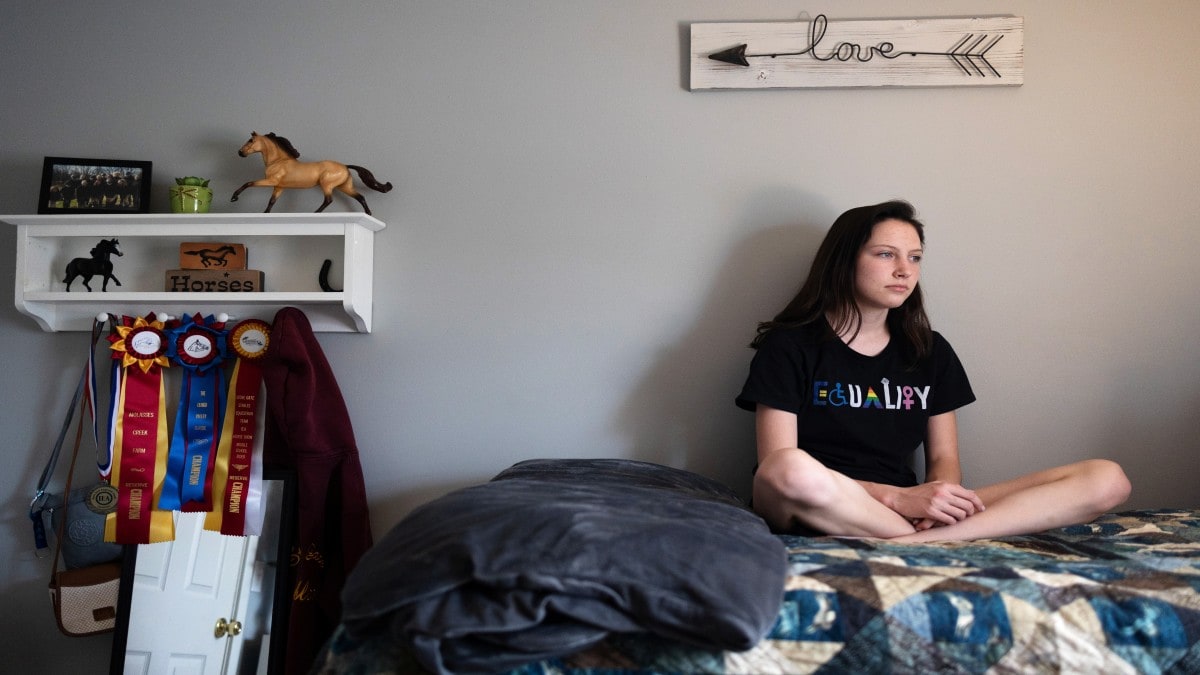A study has found that ageing adults, at least in Germany, believe old age starts later. More women than men hold this perception. Health also played a role in this view read more
)
A recent study suggests that most adults believe old age begins later than their peers did decades back. Pixabay (Representational Image)
What is the age when you become old? It seems adults have diverse opinions about the age that they consider old.
A recent study suggests that most people believe old age begins later than their peers did decades back.
Let’s take a closer look.
Who was surveyed?
The study published in the American Psychological Association’s (APA) journal Psychology and Aging earlier this week found that people in their mid-60s believe old age begins at 75.
However, as people get older, they perceive old age starts later.
The study analysed data from 14,000 participants in the German Aging Survey. Researchers at Humboldt University in Germany’s Berlin asked the question: “At what age would you describe someone as old?”
This was part of the ongoing German survey that studies participants born between 1911 and 1974 who had joined the survey at ages 40 to 85, as per NBC News.
They were posed the question eight times over 25 years from 1996 when the volunteers were between 40 and 100 years old, as per APA’s press release.
Findings of the study
Those born between 1911 and 1935 thought that old age started earlier, compared to the participants born after 1935.
As per The Guardian, Dr Markus Wettstein, co-author of the study, from the Humboldt University of Berlin, said, “For those born in 1931, the perceived onset of old age is 74 when they are 65. For those born in 1944 it is about 75 years when they are 65 years old”.
He said they could not ask 65-year-olds born in 1911 when they thought old age started, but models indicate it would have been at 71.
It was not just a generational difference though. As people grew older, they pushed the age they considered old upwards.
At age 64, people said that old age begins at 74.4, on average. However, when they reached 74, they thought they were not old yet, saying old age begins at 76.8, reported Yahoo Life.
As per the study, women also perceived old age started later than men. People’s physical and mental health also affected the outcome.
Those taking part in the study who were lonelier, or had more chronic diseases, or reported poorer health had higher chances of perceiving that old age began earlier.
The study also mentioned that the trend of viewing the onset of old age later in life has slowed in recent years.
“That the trend is decelerated could be due to the fact that other trends — the increase in life expectancy or medical progress — are also not necessarily strictly linear,” Wettstein, who is a psychologist at Humboldt University, told Yahoo Life.
ALSO READ: Can pregnancy cause women to age faster?
What could be the reason?
According to Wettstein, the increase in life expectancy and retirement age could be a factor that adults believe old age has moved upwards.
“Life expectancy has increased, which might contribute to a later perceived onset of old age. Also, some aspects of health have improved over time, so that people of a certain age who were regarded as old in the past may no longer be considered old nowadays,” he said, as per the APA.
Life expectancy in Germany is around 81 years at birth, a rise from 71 years in 1974, noted NBC News.
“We should be aware that conceptions and perceptions of ‘old’ change across historical time, and that people are quite different regarding when they think old age begins, dependent on their age, their birth cohort, but also their health etc,” the co-author of the study was quoted as saying by The Guardian.
Many adults also remain healthier for longer. “As long as older adults are healthy, they might have the impression that old age lies still ahead of them,” Wettstein told Yahoo Life.
Speaking to NBC News, John Rowe, a professor of health policy and ageing at Columbia University, said some people might have refrained from categorising themselves under old age as it would be undesirable for them.
“Some people have such negative views of the elderly that they don’t want to be associated with them. So if they’re 70 years old, they’ll say old age begins at 75. And when they get to 75, they’ll say old age begins at 80,” Rowe said.
He said the study “confirms in a very strong way, at least in Germany, that 70 is the new 60”.
Might not be for everyone
According to Jacqui Smith, a psychology professor at the University of Michigan, the findings of the study may not apply to other countries as cultural views about ageing can vary, reported NBC News.
But she said the study gives an outlook on the changing perceptions of ageing as people grow older.
“A lot of the work that we see in the literature is only taking a single snapshot of this phenomenon, a single point in time. What this study is adding is that it’s comparing different people who were born at different times who’ve clearly gone through many different historical changes in their life,” she told NBC News.
It is good to redefine ageing. After all, age is just a number.

 4 months ago
18
4 months ago
18


















)
)
)
)
)
)
)
 English (US) ·
English (US) ·